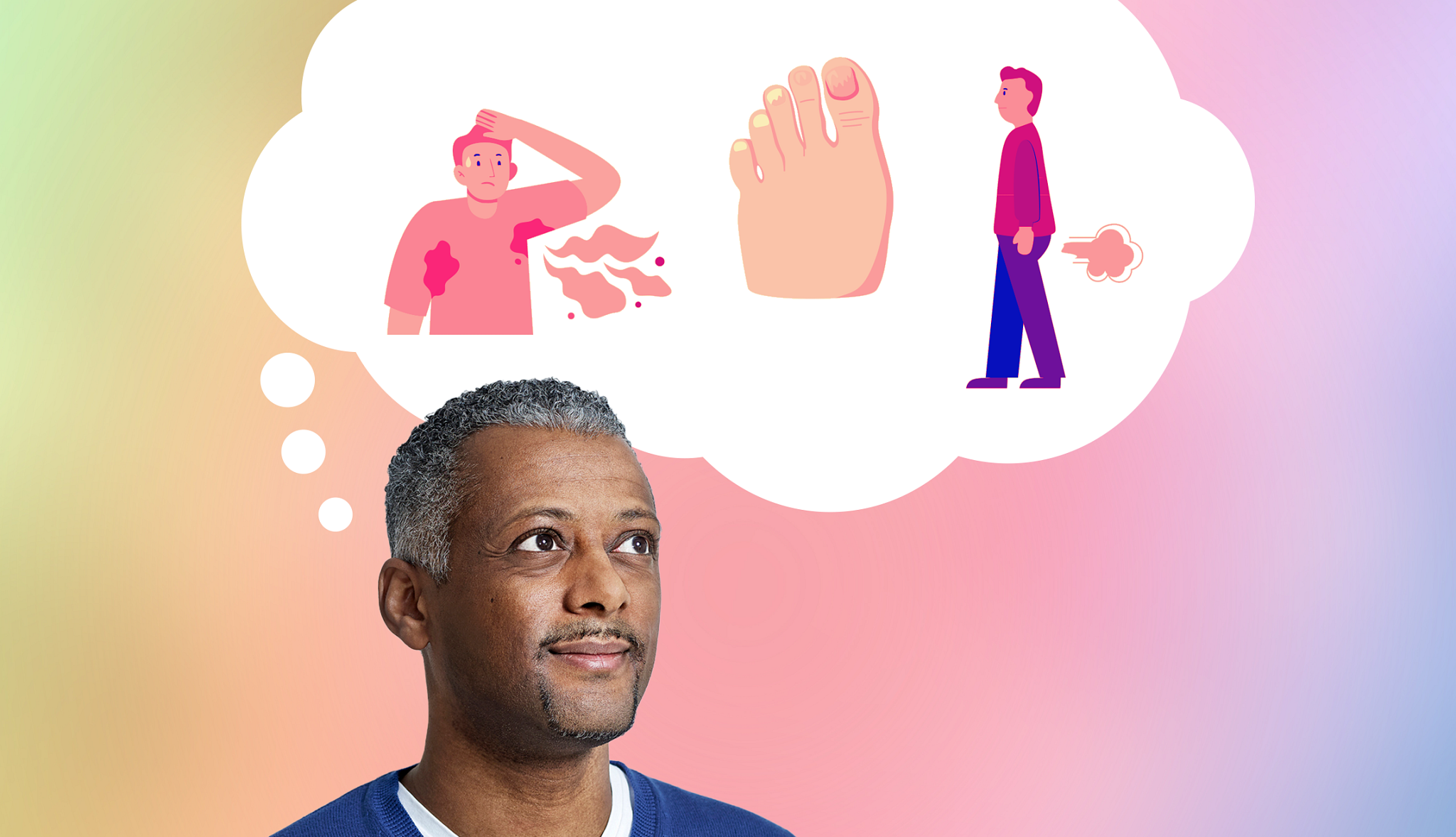Play all audios:
4. ERECTILE DYSFUNCTION As you get older, it’s normal for your erections to rise more slowly and be a little less firm. But if you often have difficulty maintaining an erection and it
disrupts your sex life, you may have erectile dysfunction, says Karyn Eilber, M.D., a urologist at Cedars-Sinai Medical Center in Los Angeles. Your risk of erectile dysfunction increases as
you get older, with research showing it affects more than 40 percent of men over age 50 and 70 percent of men over age 70. (See 10 Top Sex Tips for People Age 50 and Older.) You’re at higher
risk if you have diabetes, obesity, heart disease or high cholesterol, because those conditions can cause vascular problems that contribute to ED. Erectile dysfunction is also a side effect
of many medications. Although erectile dysfunction drugs are highly effective, many men with the disorder are too embarrassed to seek treatment, Eilber says. WHAT YOU CAN DO: Stop smoking.
Get more exercise, make good food choices and shed some pounds if you’re overweight. Try not to stress about the problem, since that can make matters worse. WHAT YOUR DOCTOR CAN DO: Check
for underlying conditions that can contribute to erectile dysfunction and prescribe an oral medication such as Viagra, Stendra, Cialis or Levitra. Other treatments depending on the cause of
your ED include talk therapy, testosterone replacement therapy or shockwave therapy. For serious cases, your doctor may recommend a penile implant. 5. BAD BREATH Like body odor, bad breath
is a condition you might not realize that you have until someone tells you. And when that happens, it can be mortifying. As many as half of all Americans have bad breath at some point or
another, according to the National Institutes of Health. The vast majority of bad breath cases – about 80 or 90 percent – are caused by bacteria in your mouth, says Maricelle Abayon, a
general dentist at Eastman Institute for Oral Health at the University of Rochester Medical Center. Dry mouth, which is more common in older adults and often caused by medication,
exacerbates bad breath because there is less saliva to wash bacteria away. (See 10 Ways to Deal With Dry Mouth.) WHAT YOU CAN DO: Avoid garlic and raw onions. Brush your teeth at least twice
a day, floss daily and scrape your tongue with a tongue scraper or gently with your toothbrush to remove bacteria. If you use a mouthwash, make sure it’s alcohol-free. Sugar-free gum and
mints can help mask odor and relieve dry mouth. WHAT YOUR DOCTOR CAN DO: Remove plaque and treat the tooth decay, gum disease and dental infections that are the most common causes of bad
breath. If dental treatment doesn’t solve the problem, your dentist may refer you to a specialist to check for another underlying cause such as a gastrointestinal issue or respiratory
infection. 6. HEMORRHOIDS People don’t like to talk about them, but about half of all people age 50 and older have hemorrhoids, according to the National Institutes of Health. Hemorrhoids
are swollen veins in the rectum or around the anus. Symptoms include itching, irritation or pain in the area around your tush. You may also notice bleeding on toilet paper or in the toilet
bowl. You’re more likely to get hemorrhoids if you strain during bowel movements or sit on the toilet for long periods of time, says Ekta Gupta, M.D., a gastroenterologist and associate
professor of medicine at Johns Hopkins University. Chronic constipation, diarrhea and heavy lifting can also contribute. Don’t assume rectal bleeding is due to hemorrhoids, Guptak advises.
Bleeding can also be a sign of colorectal cancer, anal cancer and other diseases, so it’s important to get checked out by a doctor. WHAT YOU CAN DO: Take a daily fiber supplement and eat
more high-fiber foods such as fruits, vegetables and whole grains. To ease symptoms, try over-the-counter hemorrhoid creams, hydrocortisone suppositories or witch hazel pads. Instead of dry
toilet paper, use moist toilettes or wet toilet paper, but avoid alcohol-based or scented wipes. Soak two or three times a day in a warm bath for 10 to 15 minutes. Afterward, gently pat the
area dry or blow dry with a hair dryer. WHAT YOUR DOCTOR CAN DO: Rubber band ligation, which cuts off the blood supply to hemorrhoids, is a common treatment. Other options include
injections, electrotherapy or laser therapy to shrink or destroy hemorrhoid tissue. For the most severe cases, surgery may be necessary.

